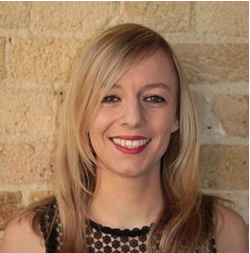“Meet the Team” is an ongoing series that features the different roles at Antidot-Fluid Topics. This is the first post in this new series.
Ever wondered what it’s like to be Head of Technical Documentation & Training at a fast-growing SaaS company? We sat down with Rémi Bove to reflect on his journey at Antidot-Fluid Topics.
Hi Rémi! Tell me, when did you join Antidot/Fluid Topics? and why?
I joined Antidot almost 13 years ago. At the time, Fluid Topics, our flagship product, didn’t exist.
I was a part-time teacher at the Aix-Marseille University Faculty of Sciences. I was at a point in my career where I just wanted to work more. One of my friends was working at Antidot and introduced me to Stéphane Loesel, founder and CTO at Antidot. He offered me a part-time position.
After a year, Stéphane ended up offering me a full-time position in Lambesc, near Aix-en-Provence. I started as an Engineering Consultant. My role was halfway between Professional Services and Customer Services.
What I really liked during my time at university was to teach, so after 3 years I took on the full-time role of Technical Consultant/Training Manager. My job was to design all the training materials for our solutions.
I finally took on the position of Head of Product Documentation and Training about 4 years ago.
What does a typical day involve?
Undeniably, there are some commonalities from day to day but what happens during the day varies so much that it isn’t typical. And that’s what I love about my job.
Here is how I could sum up my key responsibilities:
- Lead and develop a team of 2 people
- Overview the creation and management of all customer-facing online technical content, ensuring it’s always up to date (we release new features every week!)
- Create and maintain trainings for our clients and partners
- Provide the necessary training to our new employees
- Collaborate regularly with other stakeholders in Software Development, Product, IT…
Could you describe your team?
As mentioned previously, I lead a team of technical writers and software testers. Leanna has been a technical writer at Fluid Topics for over 2 years now and she owns the process of creating and managing our technical documentation. She’s actually one of our main users. She knows the product through and through.
Anaïs has been with us for over a year and a half now. Her role is to create tests for our software product. It’s fairly unusual to have a software tester in a documentation team but we realized it was beneficial to work this way. When writing tests, you need to know the product and in the doc team we’re usually the first to know about new features.
Our team is called the Product Knowledge team. I thought it would make more sense than the Tech Doc team as our main goal is to know everything there is about the product.
What did you study to get to where you are?
I have a PhD in Natural Language Processing. It mixes two disciplines, linguistics and computer science. My research focused on spoken French parsing, for speech recognition and synthesis. You can find my thesis (in French) “Analyse syntaxique automatique de l’oral : étude des disfluences” right here.
I wasn’t thinking about getting into technical documentation or software training back then. I enjoyed teaching. In a way, the skills I learned while teaching help me in my daily work.
What’s the most enjoyable part of your job?
As part of my job, I get to work on a lot of different tasks. Today, I have my interview with you, then I’m catching up with Research team, then SRE followed by some management tasks…It’s pretty diverse.
I didn’t really know anything about management before and I really love it but I wouldn’t want to lose the technical aspect of my job. I enjoy learning new things.

What has your proudest achievement been since you’ve been here?
A few years ago, I was training a client whose teams were based in the US and in India. Time zone-wise, it was a bit complicated since I’m based in France.
The training took place at night. After the last “night” of training, I went to bed at 4am and when I woke up later the next day, I had received several messages from my teammates congratulating me on the training. Little did I know that Fabrice, our CEO, had transferred an email he had received from our client, to the whole company, thanking me for an excellent job done, highlighting how his teams were now autonomous to use the product.
I felt proud of my work that day.
Have you got any tips on how to become a great documentation/training specialist?
The first thing that pops to mind is, you need to be curious, almost to the point of being obsessed (with your product).
You need to practice, test, experiment with that product. This is the reason why when I create trainings, I also design practical cases and invite new users to really play with the tool. Benjamin Franklin said: “Tell me and I forget. Teach me and I remember. Involve me and I learn,” and I really live by this saying.
You also need to pay attention to details. This is the difference between good documentation and bad documentation. I’ve already read documentation where at the end, what you were supposed to do just didn’t work.
Last but not least and this is going to sound obvious but it’s worth repeating: you need to make sure you know who you’re addressing and adapt your speech to your audience.
And finally, tell us something unique about yourself?
I’m a former long jumper! Track and Field is a sport I’ve practiced for 25 years and I still enjoy it today!
Thank you Rémi, it was great chatting with you!
Does Rémi's story inspire you?
Perfect! We have several available positions that might be interesting for you! Check out our job page.
Latest post




